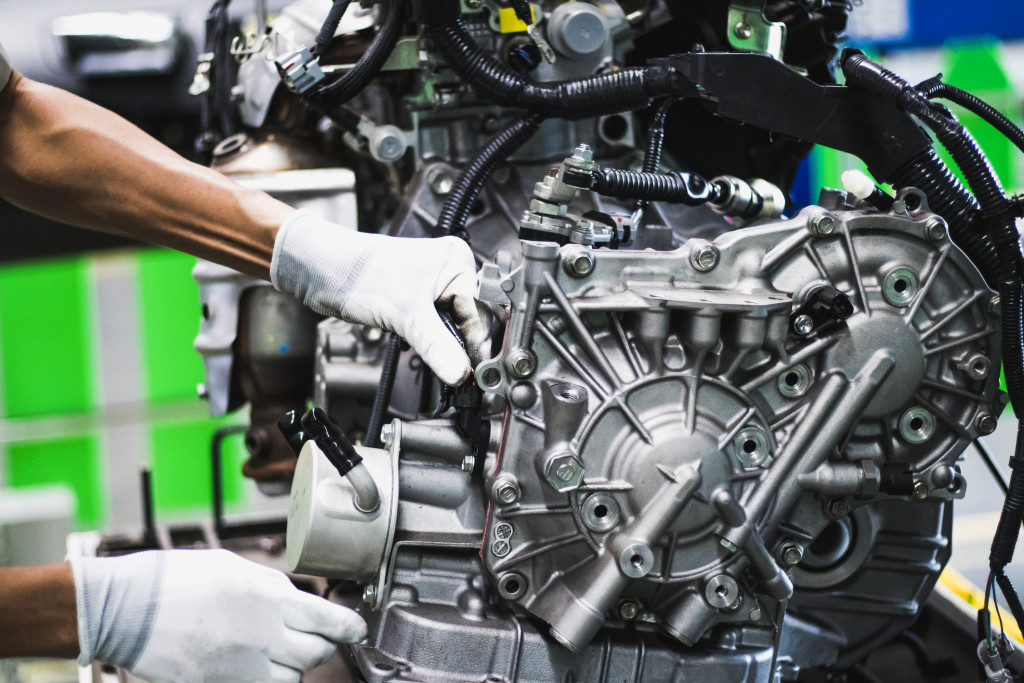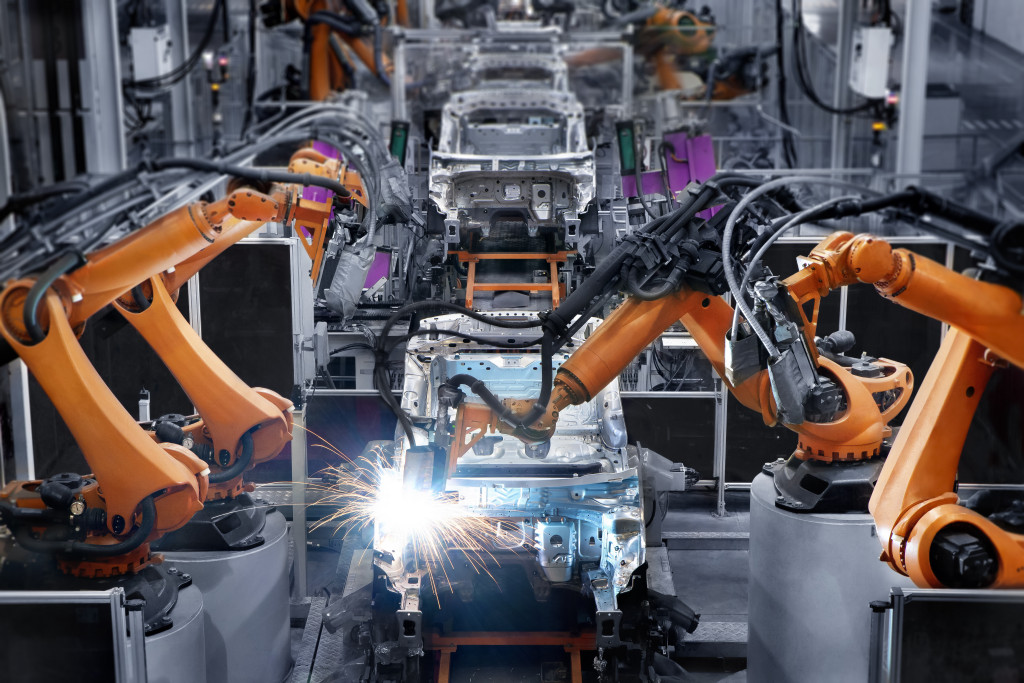• Investing in automation technology is essential to streamline automotive manufacturing processes and reduce errors.
• Automation can be used to monitor and improve employee attendance, automate inspection processes, and develop reliable information systems.
• Lean manufacturing practices such as just-in-time production, cellular manufacturing, and Kaizen help reduce waste and streamline operations.
• Data-driven decision-making is key to identifying areas of improvement and creating strategies for achieving those goals.
Automotive manufacturing companies have some of the most complex operations in the world. From assembly lines to robotic arms and 3D printers, many moving parts must be managed and coordinated for a product to go from concept to reality. Efficiency is key in these operations, but how can companies ensure they run as efficiently as possible?
Invest in Automation Technology
Automation technology is one of the best ways to improve efficiency in an automotive manufacturing company. This technology helps streamline processes by automating tedious tasks and freeing workers’ time to focus on more important tasks. For example, automated robotic arms can be programmed to perform certain tasks, such as welding or painting, more quickly and accurately than humans. This technology also helps eliminate errors since machines don’t make mistakes like humans.
Automation can also help in other aspects of the industry, such as the following:
Monitoring and Improving Employee Attendance
Automation technology can also be used to monitor and improve employee attendance. By choosing an efficient attendance management system, you can easily track who is coming in and out of their premises and what time they arrive and depart. This helps combat tardiness and absences since it gives managers detailed insight into their employees’ attendance patterns.
Automation systems can also alert managers when someone is absent or running late, so they can act quickly and address the issue. Automation technology in attendance management helps to improve productivity and efficiency since it removes the need for manual processes that waste time and resources.
Automating Inspection Processes
An automated inspection process helps ensure that all car parts are up to standard and safe for use. Automated inspection processes can reduce the time to inspect each part while providing more accurate results than manual inspections. This can also help detect errors quickly, so they can be addressed before they become an issue, thus improving quality control and reducing costs associated with reworks. Automation can also monitor the final product’s quality, helping ensure that cars are safe and up to standard before they reach consumers.
Develop an Information System
Having a reliable information system is essential in any automotive manufacturing company. This system helps store and organize data related to production, inventory, customer orders, and more. A well-designed information system helps ensure that everyone in the company is on the same page, from engineers to managers. This makes it easier for them to collaborate and make decisions quickly, which can help streamline operations and improve efficiency.

Implement Lean Manufacturing Practices
Lean manufacturing is an approach that focuses on eliminating waste and improving efficiency within a manufacturing process. It helps to identify and eliminate any steps that are not adding value to the process, thus reducing costs and improving efficiency. You can implement lean practices such as just-in-time production, cellular manufacturing, and Kaizen. These practices help reduce waste and streamline operations, increasing productivity and efficiency.
- Just-in-time Production: Just-in-time (JIT) production helps reduce inventory costs by producing parts only when needed. This helps to save on space and money that would be wasted by having excess inventory.
- Cellular Manufacturing: Cellular manufacturing organizes the production process into different cells based on product type or function. This helps improve efficiency and accuracy since workers are only responsible for a specific part of the process.
- Kaizen: Kaizen is a continuous improvement method that helps identify areas where efficiency can be improved. It encourages employees to develop ideas to improve processes and act on these suggestions. This helps ensure that operations are continuously improved and that efficiency is always at its highest.
By implementing lean practices, companies can reduce costs, increase production speeds, and improve product quality control. Some common lean practices include optimizing inventory levels, reducing machine setup times, and eliminating unnecessary steps in the production process.

Utilize Data-driven Decision Making
Data-driven decision-making is key to improving efficiency in an automotive manufacturing company. By collecting data on production times, employee productivity, customer feedback, etc., companies can gain valuable insights that will help them identify areas where improvements can be made and create strategies for achieving those goals. Data-driven decision-making enables companies to make informed decisions based on real-time data rather than intuition or guesswork, making it an invaluable tool for improving efficiency.
Optimizing efficiency in an automotive manufacturing company requires careful planning and implementing appropriate strategies. Investing in these methods will increase efficiency within your automotive manufacturing process, ultimately leading to improved profits for your business!

